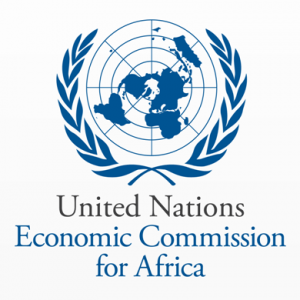ECA dialogue on implementation of AfCFTA
 The Sub-Regional Office for West Africa of the Economic Commission for Africa (ECA/SRO-WA) has partnered with the West African Monetary and Economic Union (UEMOA) and the Economic Community of West African States (ECOWAS) Commission to discuss the state of implementation of the African Continental Free Trade Area (AfCFTA) and how the private sector can play an active role in ensuring the successful implementation of the AfCFTA.
The Sub-Regional Office for West Africa of the Economic Commission for Africa (ECA/SRO-WA) has partnered with the West African Monetary and Economic Union (UEMOA) and the Economic Community of West African States (ECOWAS) Commission to discuss the state of implementation of the African Continental Free Trade Area (AfCFTA) and how the private sector can play an active role in ensuring the successful implementation of the AfCFTA.
It is hosting a virtual forum that brings together the best and experienced high representatives from West African intergovernmental organizations (IGOs) and the private sector.
The forum seeks to enhance the preparedness and involvement of sub-regional stakeholders, particularly Regional Economic Communities (RECs), IGOs and sub-regional private sector platforms, in the implementation of the AfCFTA.
According to Madam Ngone Diop, Director, ECA/SRO-WA, the ECA/SRO-WA seeks to build synergies among the various components of its core mandates of harnessing the demographic dividend, achieving regional integration and transformational development of West African countries.
She says they are optimistic that the forum will not only dissect the issues but ask hard questions such as whether the human capital transformation has been fully addressed to ensure an economic transformation that creates sustainable jobs?
“How can the AfCFTA opportunities be turned into tangible development outcomes? How can the “Made in West Africa” Initiative have a life of its own riding on the back of public-private partnership? What incentives are provided by the AfCFTA to attract the West African private sector to fully commit to trading and investing in the AfCFTA?
Do the provisions of the AfCFTA permit project developers, investors, small- and medium-sized enterprises (SMEs), large firms, and multinationals to take full advantage of the AfCFTA to invest across sub-regions of Africa; and what regional macroeconomic framework is needed to motivate private sector participation?”
These questions, Diop believe will help inform the panel discussions and the quality of the policy recommendations to be derived from the Forum.
The 2 days deliberations will feature the ongoing lingering effects of the COVID-19 pandemic that has depressed economic activities around the world including West Africa and other sub-regions of Africa.
Real GDP growth for West Africa slumped to 0.7 per cent in 2020, from 3.5 per cent in 2019 with the brunt of the negative effects mostly felt by Cabo Verde, Liberia, Guinea Bissau, Sierra Leone, Mali, and Nigeria (ECR-SRO-EA May 2021 Policy Brief).
This according to Diop has implications for the private sector role as a viable vehicle to drive the operationalization of the AfCFTA agreement, in addition to national governments and IGOs.
According to the ECA 2020 Economic Report on Africa, the private sector in Africa is a powerful force for economic growth and has the potential to transit economies from low-income to middle-income status.
At the global level, the private sector generates more than 70 per cent of jobs; invents, designs, and produces most of the goods and services that translate into value-added and contributes more than 80 per cent of government revenue in low-income and middle-income countries through company taxes and income tax on employees.
This means that increasing the role of the West African private sector for better outcomes is an option that resonates with the African Continental Free Trade Area (AfCFTA) initiatives to harness the demographic dividend, grow the middle class, increase the use of technology, promote rapid urbanization and boost opportunities for regional and global value chains for African businesses as strategic drivers of economic growth in Africa.
By Theodora Aidoo
Copyright ©2021 by NewsBridge Africa
All rights reserved. This article or any portion thereof may not be reproduced or used in any manner whatsoever without the express written permission of the publisher except for the use of brief quotations in reviews.
